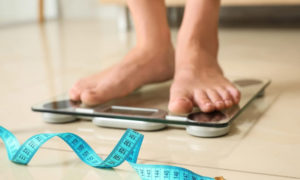
The Truth About Diet Refeeds
Refeeds are essentially mini diet breaks. However, instead of going to maintenance for weeks at a time, refeeds only last days. Some people also take refeeds into a surplus.

When it comes to the three macronutrients, protein is like the golden child. It’s the one that does everything well and never gets blamed for much.
Protein by far has the highest thermic effect and is deeply difficult for your body to store as fat (5).
When you eat protein in a caloric deficit (eat less calories than you burn), a higher ratio of protein generally produces more favorable weight loss results.
When you eat in a surplus (eat more calories than you burn), additional protein contributes little to fat gain.
I hate to play favorites, but protein is quite the all star nutrient. It enhances fat loss results and is more forgiving when you overeat it. Fats and carbs on the other hand are a bit different. They are both useful and important in their own ways, but both contribute to your love handles more than protein when overeaten which often gives them a bit worse of a reputation.
When you’re dieting, your carb to fat ratio is largely irrelevant. You end up losing the same amount of weight given calories are equal. The research is clear on this.
However, what most people don’t know is that between carbs and fat, one of them does seem to contribute more to fat gain when you eat in a caloric surplus even when calories are equal.
This is important because if 2 genetically equal people overeat the same amount of calories, but their carb to fat ratio was different, one person will gain more fat.
And let’s be real, we all binge our faces off from time to time so choosing between candy and soda or cheesecake and mozzarella sticks can make the difference between the amount of fat we gain.
This also applies to people on a bulk who are intentionally eating in a surplus and want to minimize fat gain. Choosing an ideal ratio of macros will minimize fat gain.
So let’s look at some research to find out which is more fattening, carbs or fat?
We have overwhelming research that overeating carbs or fat in any amount will result in weight gain, but surprisingly we have very little research to see which one is more fattening.
There are 3 pretty good studies on this topic, but even then, they have their limitations (1). The first 2 studies targeted sedentary people which might not be applicable to active individuals.
Horton and colleagues were first to test this out (2). They took both lean and obese individuals and overfed them in 2 groups for 3 weeks, a high carbohydrate group and a high fat group.
They fed both groups a surplus of 50% for 2 weeks. Protein was matched between groups at 11% of caloric intake.
The results showed weight gain was the same between groups, but the high fat group had gained a slightly higher proportion of fat. The high carb group had 75-85% of excess calories stored as fat while the high fat group had 90-95% of excess calories stored as fat.
In this next study, researchers overfed two groups of normal weight males, a high carb group and a high fat group (3). Protein was matched at the same 11% of caloric intake just like the last study.
Food intake was controlled along with 24 hour supervision.
This time, the results did not reach a statistical difference, but the high fat group still had a higher proportion of fat gain (69% vs 57%).
Another study found that replacing an equal calories of carb intake with fat resulted in additional organ fat, but not the jiggly fat under your skin (7).
Not a direct comparison, but useful information nonetheless.
So Should I Binge on Candy or Mozzarella Sticks?
It seems excessive fat intake is more likely to result in additional fat gain. This is likely because carbs have been shown to have a slightly higher thermic effect meaning you burn slightly more calories digesting it (5).
We know fiber and unsaturated fat are both less fattening calorie for calorie, so having more precise research with specific types of carbs/fat in the future is needed and could yield some different results (4,6,8).
Another caveat is that in some studies, even with big surpluses, the difference was pretty minor. It’s possible that fat is still more fattening than carbs, but at smaller surpluses the difference isn’t even noticeable.
So whether you choose to binge on candy or mozzarella sticks, the difference is minor. If you want to potentially error on the side of safety, overeat carbs not fat.
At the end of the day, you should still consider your individual difference as you might personally respond better/worse to one over the other.
Grab my free checklist on how to defeat your worst food cravings

Refeeds are essentially mini diet breaks. However, instead of going to maintenance for weeks at a time, refeeds only last days. Some people also take refeeds into a surplus.

Meathead bros have oversimplified that moderate rep ranges around 8-12 reps are the holy grail for muscle growth.

The scale is a dick huh? Well, that’s what you assume because you’re hyperemotional about it, so perhaps you’re the dick here. Didn’t think I’d turn the tables like that so early huh?